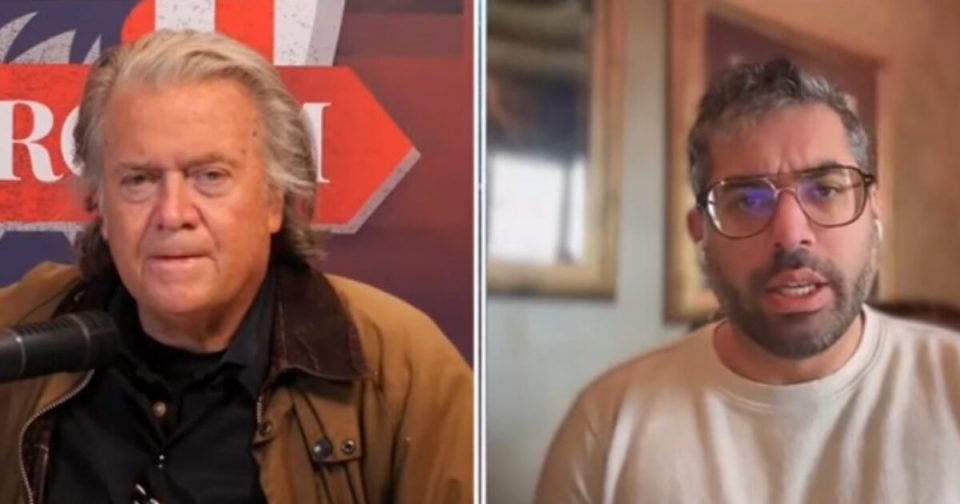A ‘Read-My-Lips’ Moment for Trump?

Liturgical Renewal—and Every Other Kind—In the Light of Christ
September 15, 2017
Pondering the Night of the Senses and the Paradox That We See Farther in the Darkness
September 16, 2017
By Patrick J. Buchanan, Friday – September 15, 2017
“Having cut a deal with Democrats for help with the debt ceiling, will Trump seek a deal with Democrats on amnesty for the ‘Dreamers’ in return for funding for border security?”
The answer to that question, raised in my column a week ago, is in. Last night, President Donald Trump cut a deal with “Chuck and Nancy” for amnesty for 800,000 recipients of the Deferred Action for Childhood Arrivals program who came here illegally as youngsters, in return for Democratic votes for more money for border security.
According to preening Minority Leader Pelosi, the agreement contains not a dime for Trump’s Wall, and the “Dreamers” are to be put on a long glide “path to U.S. citizenship.”
Trump denies this is amnesty, and says the Wall comes later.
Fallout? Among the most enthusiastic of Trump backers, disbelief, disillusionment and wonderment at where we go from here.
Trump’s debt-ceiling deal cut the legs out from under the GOP budget hawks. But amnesty would pull the rug out from under all the folks at those rallies who cheered Trump’s promise to preserve the country they grew up in from this endless Third World invasion.
For make no mistake. If amnesty is granted for the 800,000, that will be but the first wave. “There are reasons no country has a rule that if you sneak in as a minor you’re a citizen,” writes Mickey Kaus, author of “The End of Equality,” in The Washington Post.
“We’d be inviting the world. … (An amnesty) would have a knock-on effect. Under ‘chain migration’ rules established in 1965 … new citizens can bring in their siblings and adult children, who can bring in their siblings and in-laws until whole villages have moved to the United States.
“(T)oday’s 690,000 dreamers would quickly become millions of newcomers who may well be low-skilled and who would almost certainly include the parents who brought them — the ones who in theory are at fault.”
Trump is risking a breach in the dam. If the populists who provided him with decisive margins in Ohio, Wisconsin, Michigan and Pennsylvania feel betrayed, it’s hard to blame them.
Why did Trump do it? Clearly, he relished the cheers he got for the debt ceiling deal and wanted another such victory. And with the rampant accusations of a lack of “compassion” for his cancellation of the temporary Obama administration amnesty, he decided he had had enough heat.
It is not easy to stand up for long to the gale force winds of hostile commentary that blow constantly through this city.
Trump’s capitulation, if that is what turns out to be, calls to mind George H. W. Bush’s decision in 1990 to raise the Reagan tax rates in a deal engineered for him by a White House-Hill coalition, that made a mockery of his “Read my lips! No new taxes!” pledge of 1988.
For agreeing to feed the beast of Big Government, rather than cut its rations as Reagan sought to do, Bush was called a statesman.
By the fall of ’92, the cheering had stopped.
Can Trump not know that those congratulating him for his newfound flexibility will be rejoicing, should Bob Mueller indict his family and his friends, and recommend his impeachment down the road?
What makes pre-emptive amnesty particularly disheartening is that the Trump policy of securing the border and returning illegal immigrants to their home countries appears, from a Census Bureau report this week, to be precisely the prescription America needs.
In 2016, paychecks for U.S. households reached an average of $59,039, up 3.2 percent from 2015, a year when they had surged.
U.S. median household income is now at its highest ever.
Yet there are inequalities. Where the median family income of Asian-Americans is above $81,400, and more than $65,000 for white Americans, the median family income of Hispanic families is $47,675, and that of African-American households far less, $39,490.
Consider. Though black Americans are predominantly native-born, while high percentages of Hispanics and Asians are immigrants, from the Census numbers, Hispanics earn more and Asians enjoy twice the median family income of blacks, which is below where it was in 2000.
Still, black America remains steadfastly loyal to a party that supports the endless importation of workers who compete directly for jobs with them and their families. Writes Kaus, “The median hourly wage (of DACA recipients) is only $15.34, meaning that many are competing with hard-pressed, lower-skilled Americans.”
Looking closer at the Census Bureau figures, Trumpian economic nationalism would appear to have its greatest appeal to the American working class, a huge slice of which is native-born, black and Hispanic.
The elements of that policy?
Secure the border. Halt the invasion of low-wage workers, here legally and illegally, from the Third World. Tighten the labor market to force employers to raise wages in our full-employment economy. Provide tax incentives to companies who site factories in the USA. Impose border taxes on the products of companies who move plants abroad.
Put America and American workers first.
Will any amnesty of undocumented workers do that?




